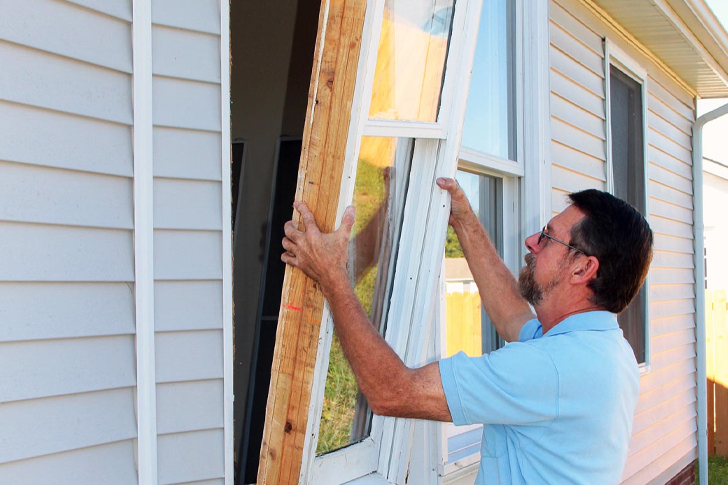Senior’s Guide to Budget-Friendly Window Upgrades
Windows are essential components of every home, offering light, warmth, and ventilation. However, they also require maintenance and eventual replacement due to wear and tear over time, particularly in homes of senior citizens who need the most energy-efficient and maintenance-free solutions available at a reasonable cost. This article explores practical tips and strategies for seniors to replace their windows without breaking the bank.

The Importance of Efficient Windows
Windows play a significant role in the energy conservation of a home. Aging or poorly maintained windows can lead to significant heat loss during winter and excess heat during summer. This inefficiency leads to higher utility bills—a concern particularly relevant for seniors living on fixed incomes. According to the U.S. Department of Energy, heat gain and heat loss through windows are responsible for 25% to 30% of residential heating and cooling energy use. Therefore, investing in energy-efficient windows can substantially reduce heating and cooling costs.
Understanding Window Replacement Costs
The cost of window replacement varies based on the type of window, material, and labor. On average, homeowners can expect to spend anywhere from $300 to $1,000 per window, with costs leaning higher for high-performance, energy-efficient windows. Factors such as the window’s size, frame material (e.g., vinyl, wood, aluminum), and type of glass (e.g., double-pane, insulated) will also affect the price.
Seeking Financial Assistance
Many seniors may not be aware that financial aid is often available for such home improvements:
1. **Government Programs**: HUD’s HOME Investment Partnerships Program and the Weatherization Assistance Program provide grants and funds for repairs and upgrades to make homes energy-efficient, including window replacement.
2. **Utility Company Programs**: Some local utility companies offer rebate programs for customers who install energy-efficient windows.
3. **Non-profits and Foundations**: Organizations like Habitat for Humanity sometimes offer assistance in the form of discounted materials or volunteer labor for seniors.
Choosing the Right Windows for Cost and Energy Savings
When selecting new windows, it’s crucial for seniors to consider both immediate costs and long-term savings:
– **Vinyl Windows**: These are usually the most affordable, offer high energy efficiency, and require little maintenance.
– **Double-Pane Windows**: Featuring two layers of glass, these windows provide better insulation than single-pane windows, making them ideal for energy conservation.
– **Low-E Glass**: Windows treated with Low-E (low emissivity) coatings reflect more heat, keeping homes warmer in winter and cooler in summer.
Finding Discounts and Deals
– **End of Season Sales**: Buying windows in late fall or winter can often result in lower prices as demand slows down.
– **Bulk Purchase Discounts**: Seniors undergoing full home renovations can negotiate discounts when replacing all windows at once.
– **Bartering for Services**: Sometimes, seniors with skills or resources can trade with small local contractors who may need help in areas outside of window installation.
DIY Window Replacement
For the handy seniors, undertaking the installation of new windows as a DIY project can save on labor costs. Many home improvement stores offer workshops and online tutorials to teach homeowners how to install windows safely and efficiently.
Conclusion
Window replacement for seniors doesn’t have to be prohibitively expensive. Through government and non-profit programs, smart shopping, and choosing the right products, seniors can achieve a significant decrease in their energy bills while enhancing the comfort and functionality of their homes. Awareness of available resources and being proactive can lead to substantial savings and improved living conditions.







Recent Comments